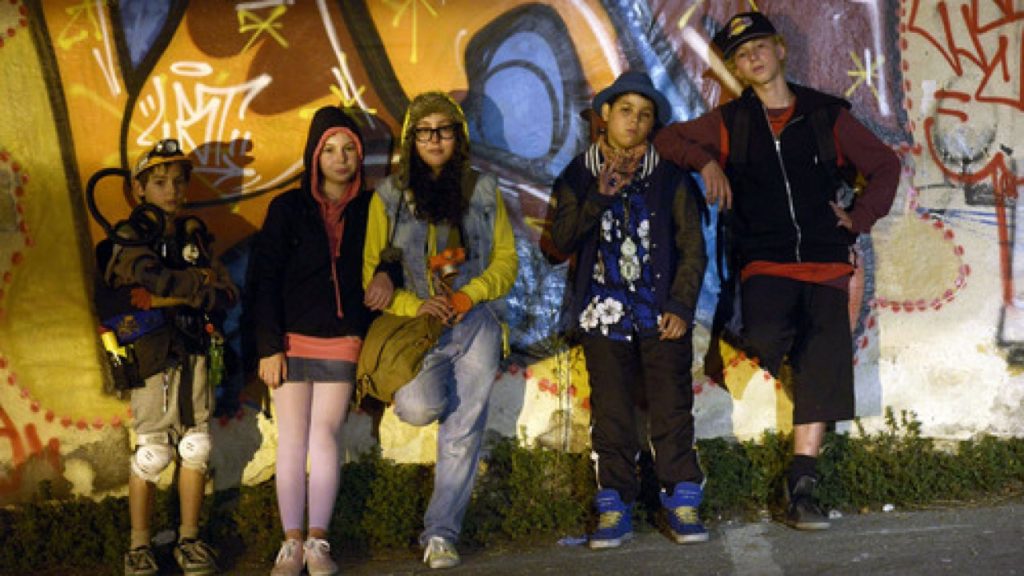Article: Humor with french accent
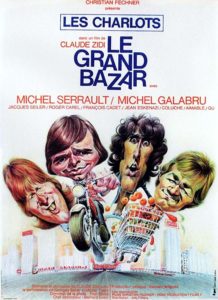 Making humor is not easy, even because, what is funny for someone, may not be for others. While many laughed out loud with “Due Date”, I hated every minute I spent watching it until I left the movie theater. But, when doing a retrospect of some French comedies, I have been able to see how things are different on the other side of the Atlantic.
Making humor is not easy, even because, what is funny for someone, may not be for others. While many laughed out loud with “Due Date”, I hated every minute I spent watching it until I left the movie theater. But, when doing a retrospect of some French comedies, I have been able to see how things are different on the other side of the Atlantic.
Although I’m not a comedian expert – French, American or Brazilian – I have a good idea of what I do not like, like American nonsense movies, or copies of TV shows that go to the movies. So it was a pleasant surprise to pick three French comedies at random, and like them all – a lot!
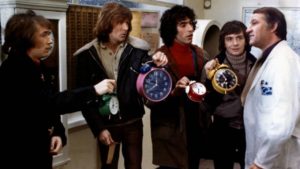 My trip to the world of French humor began with “The Big Store” (“Le Grand Bazar”, FRA, 1973), with the humorous group Les Charlots. Curiously, their origin was as a musical group, in 1966, with a comic and parodic style, evolving them from the stages to the cinema screens.
My trip to the world of French humor began with “The Big Store” (“Le Grand Bazar”, FRA, 1973), with the humorous group Les Charlots. Curiously, their origin was as a musical group, in 1966, with a comic and parodic style, evolving them from the stages to the cinema screens.
Formed initially by Gérard Rinaldi, Gérard Filippelli, Jean Sarrus, and Jean-Guy Fechner, the group achieved great success in the 1970s with films such as “La Grande Java”, “Les Bidasses en Folie”, “Les Fous Du Stade “,” Les Bidasses s’en Vont en Guerre” and “The Big Store”. Their humor was scenic, almost naive, reminding much of the brazilians Trapalhões at the beginning of their career.
 In “The Big Store” the group wants to help a friend whose grocery store is threatened with the arrival of a large supermarket in the neighborhood. The four friends use a lot of creativity to bring customers to the friend’s store while the supermarket manager takes the battle as a personal affair. The film is very entertaining, with few dialogues and lots of bizarre jokes, but without the bad taste of its similar Americans ones.
In “The Big Store” the group wants to help a friend whose grocery store is threatened with the arrival of a large supermarket in the neighborhood. The four friends use a lot of creativity to bring customers to the friend’s store while the supermarket manager takes the battle as a personal affair. The film is very entertaining, with few dialogues and lots of bizarre jokes, but without the bad taste of its similar Americans ones.
The second movie on my list is “The True Life of Teachers” (“La vrai vie des profs”, FRA, 2013). The film was directed by Emmanuel Klotz and Albert Pereira-Lazaro, two professionals in the world of children’s cinema.
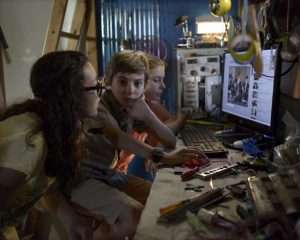 The story is starred by five children from Marseille, Albert (Emir Seghir), Jean-Mohamed (Sami Bouzid), Juju (Maëva Arnoux), Mousse (Enzo Vallejos-Celotto) and Sissi (Victoire Poupon). Colleagues in high school, they are responsible for the internal newspaper, which seems to be a very tedious task.
The story is starred by five children from Marseille, Albert (Emir Seghir), Jean-Mohamed (Sami Bouzid), Juju (Maëva Arnoux), Mousse (Enzo Vallejos-Celotto) and Sissi (Victoire Poupon). Colleagues in high school, they are responsible for the internal newspaper, which seems to be a very tedious task.
After discovering that one of the most conservative teacher was dating a biker, Albert convinces the others to blog about the true life of the teachers. For this they come to inspect the garbage, invade offices and even snoop around the windows, looking for intimate situations.
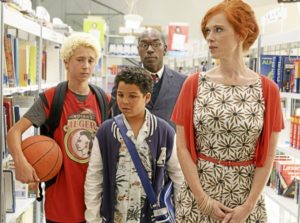 The blog is a tremendous success, but it goes overboard, causing the resignation of French teacher Madame Oufkir (Audrey Fleurot), when it is revealed that she had an affair with the principal (Lucien Jean-Baptiste). At the same time, the boys go through the common problems of early adolescence, which harms the group’s relationship.
The blog is a tremendous success, but it goes overboard, causing the resignation of French teacher Madame Oufkir (Audrey Fleurot), when it is revealed that she had an affair with the principal (Lucien Jean-Baptiste). At the same time, the boys go through the common problems of early adolescence, which harms the group’s relationship.
Although it is a film aimed at the children’s audience, its light humor makes the final result very pleasant for all audiences. Besides the simple and fun story, are also shown different landscapes of Marseille, and its multiculturalism, something strange for most Brazilians.
 The third film of my selection is “Holidays by the Sea” (“Ni à vendre ni à louer”, FRA, 2011), directed by Pascal Rabaté. One curiosity about this movie is that it stayed a lot of time in my inventory of things to see, since the subtitle was missing. One night, I decided to take a look at the film, and when I realized, I had watched almost everything. The subtitle? No need of it, because the film has practically no dialogues.
The third film of my selection is “Holidays by the Sea” (“Ni à vendre ni à louer”, FRA, 2011), directed by Pascal Rabaté. One curiosity about this movie is that it stayed a lot of time in my inventory of things to see, since the subtitle was missing. One night, I decided to take a look at the film, and when I realized, I had watched almost everything. The subtitle? No need of it, because the film has practically no dialogues.
The original title does not say much, but really the film deals with a weekend at the beach, involving campers and guests of a hotel by the sea. This movie has the best Jaques Tati style, with almost no dialogue and many gags that make the film filled with subtle humor and great fun.
 The cast consists of well-known actors of French cinema, such as Jacques Gamblin, François Damiens, François Morel, Dominique Pinon, Stéphanie Pillonca, Catherine Hosmalin, and many others. A featured person is the Portuguese actress Maria de Medeiros, who became known worldwide when living the writer Anaïs Nin in “Henry & June”.
The cast consists of well-known actors of French cinema, such as Jacques Gamblin, François Damiens, François Morel, Dominique Pinon, Stéphanie Pillonca, Catherine Hosmalin, and many others. A featured person is the Portuguese actress Maria de Medeiros, who became known worldwide when living the writer Anaïs Nin in “Henry & June”.
The gags are varied by crisscrossing all the characters. A man chases a fugitive kite and is helped by a woman because her necklace was taken along. Among the places that will be required to go is a nudist camp.
 An executive has his wallet stolen by two rogues, and is still handcuffed in bed by a dominatrix, who takes his car and throws his clothes in the trash. A couple of hippies travel with two dogs, while a plus size couple amuses themselves in a tiny cabin that still houses the neighboring campers during a heavy storm.
An executive has his wallet stolen by two rogues, and is still handcuffed in bed by a dominatrix, who takes his car and throws his clothes in the trash. A couple of hippies travel with two dogs, while a plus size couple amuses themselves in a tiny cabin that still houses the neighboring campers during a heavy storm.
In one of the most restrained roles of his career, Dominique Pinon is quite at home in this crazy film, having participated in productions such as “Delicatessen”, “Amélie”, “Micmacs”, “The City of Lost Children” and “Alien: Resurrection”.
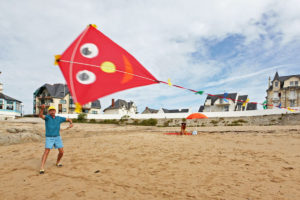 In this small sampling of French comedy, the viewer can appreciate a differentiated kind of humor, very different from its American counterparts, and, unbelievably, of imitations of these films made in France itself!
In this small sampling of French comedy, the viewer can appreciate a differentiated kind of humor, very different from its American counterparts, and, unbelievably, of imitations of these films made in France itself!

